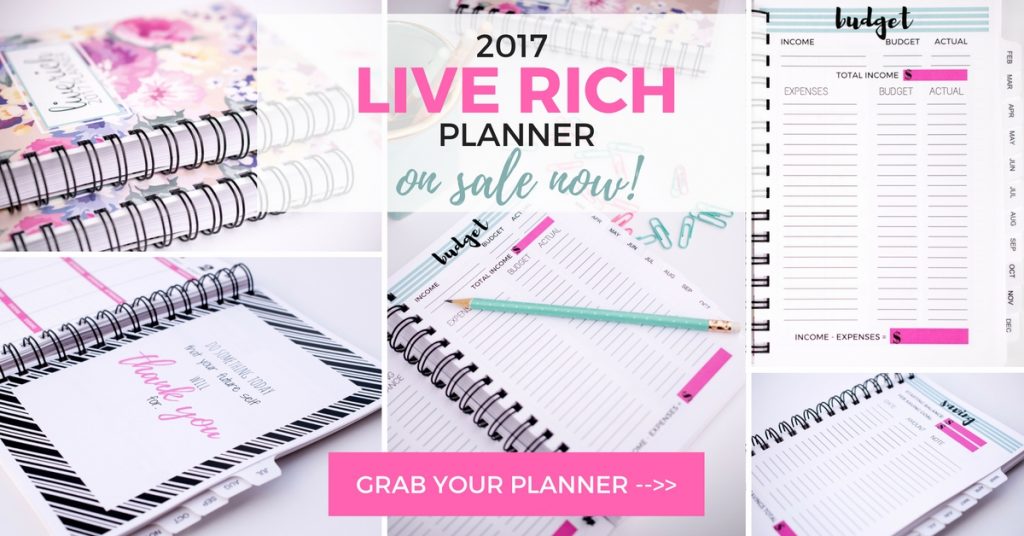
In the last month of the year, many people are running around trying to get last-minute holiday shopping done, planning out their New Year's resolutions and worrying about how to finish out the year strong. You might not realize it, but prepping your finances for next year is also important.
With money being one the leading causes of stress among Americans, according to the American Psychological Association, creating a plan for your finances for the new year is great way to relieve some of that stress. Nothing makes me feel better than knowing I have a plan in place to guide me towards success and reaching personal goals.
I don't know about you, but there is something so refreshing knowing you get a fresh start during the new year. In some way, it gives us the ability to put the past behind us and start fresh. Even though we are about to close the final chapter for this year, there are still things you can do to prepare your finances to make the new year even better.
- Related: How to Calculate Your Net Worth
LOOK AT YOUR CURRENT BUDGET
Nothing is more important than understanding where you stand with your current budget. Your current financial position will give you the ability to see where you need to make adjustments. Review your income and expenses and decide if you need to make changes. Are there categories in your budget that are no longer necessary? Are there new expenses that you must plan for that are not currently in your budget?
One of the ways I am using my current budget to prepare for the new year is by looking at my income. I have some pretty insane goals for 2017, and the only way I can plan on reaching those goals is by making more income. How much more? By looking at my income throughout the year, and comparing that to my expenses, it's easy for me to see how much more I have to make every month in the new year to be successful.
So, to start the new year off right with your budget, go through every line category. Assess your spending for those categories and see if you can cut back or make adjustments.
FOCUS ON YOUR FINANCIAL GOALS
How many times have you set a New Year's resolution only to come up short at the end of the year? According to an article that was published on PsychologyToday.com, around 50% of the population makes resolutions each new year. Why do we do this? Timothy Pychyl, who is a professor of psychology at Carleton University, describes resolutions as a form of “cultural procrastination.” Other people claim that resolutions are just a way of motivating us to make changes that we want to see happen.
Maybe this is all true, but I believe that in a small way, people make resolutions because they are unhappy about specific things in their lives. Is it harsh to think this? Maybe people are unhappy about the amount of debt they are carrying on their shoulders, the lack of freedom they have because of their limited income, or about their inability to save enough money.
I have never made a New Year's resolution, but I do make financial goals. What's the difference? When I think of the word “goal,” I see it as the desired result that I wish to achieve. It's basically an end-point of where I want to see myself after a certain period of time. I see a “resolution” as more of a long-term change and is something that you keep instead of completing.
Let's use the most common example of a New Year's resolution – being healthier.
Maybe your New Year's resolution is to live a more healthy lifestyle. That can mean working out more, eating healthier foods, or getting on a better sleep schedule. Do you see how this is very vague? Being healthier can mean many different things.
Having goals are a lot more specific. Instead of just saying that you want to be healthier in the new year, set up a goal to workout at least three times a week for the entire year. Creating a realistic goal that you can measure with clear baby steps, makes it a lot easier to obtain.
When setting you your goals for the new year, make sure that you can answer these questions:
- What? – I want to save $300.
- When? – I want to save $300 by December 31st.
- How? – I want to save $300 by December 31st by reducing my spending and cutting back on my grocery budget.
- Why? – I want to save $300 by December 31st, so I have money to cover unexpected expenses.
By answering these questions, you create a clear picture of what you want to accomplish, and you also create an actionable plan on how you're going to be successful.
GET RID OF THE FINANCIAL CLUTTER
For the first two years of my financial journey, I never threw any of my financial documents away. Not because I enjoyed them lying all around my house but because I simply didn't know which ones I needed to keep and which ones I could throw away.
The end of the year is the perfect opportunity to go through your pile of financial documents and toss everything that you don't need anymore. If you are anything like me, this may seem a little scary. The thought of “What happens if I need that later?” is one of the main reasons I let the mountain of financial documents take up my attic space.
It is true that there are important documents that should never be thrown away, such as birth certificates, military and marriage records, and social security cards (please don't carry these in your wallet).
But when your space is bursting at the seam with receipts and bills, it's time to jump in and get rid of some of it. What I have learned during this process is that throwing away the paperwork that you don't need, makes it so much simpler to organize the important paperwork that you do need.
TAX RETURNS: Technically speaking, the IRS says you should keep your returns for at least three years. But, the IRS has the capability to audit you for up to six years. Without making things complicated, I keep my tax returns for 6 years and then toss them.
INVESTMENTS: If you have your money invested, it's important that you keep any supporting tax documents with your tax return. If you received 1099 forms, make life easy and staple them to your returns. I have a tax binder where I keep my past returns for the last six years. For each tax return, I keep all documents that I used to file my taxes. Your 1099, which shows whether you had capital gains or losses, should be kept with your tax return. After six years, I throw mine away.
All of the prospectuses or annual reports can be shredded immediately after viewing. Make sure to ask your finance professional about the ability to email these documents to you. Instead of arriving in your mailbox, these communications can be sent electronically. They do contain account numbers or values, so having them sent via email doesn't bother me. This mean less paper in your mailbox.
RETIREMENT ACCOUNTS: If you made contributions to your retirement accounts, make sure to keep records of your contributions. Contributions made are usually shown on tax form 5498. Keep these documents for as long as the account is opened. It's important to let your accountant know of any contributions that you have made throughout the year. The 5498 just proves to the IRS that you did pay taxes on the money that you contributed.
PAY STUBS: You don't need to keep a hard copy of your pay stubs. I do keep the last three months worth of pay stubs because there are some instances where you will need proof of income.
BANK STATEMENTS: Unless you plan on applying for a loan, shred them after reviewing them. If you are planning on applying for a loan, keep the last three months.
LOANS: When it comes to loan documents, it's important to maintain the loan disclosure paperwork that you first received after being approved for the loan. Keep a copy of the most recent loan statement, and shred the rest. If you pay off a loan in full, make sure to keep the final payment receipt for seven years for proof of payoff.
MEDICAL RECORDS: Insurance statements, doctor's bills, or prescription bills should be kept for five years from the date of service.
Suzeorman.com has an excellent in-depth list that you can print out. Simple truth, if you don't need it, get rid of it.
No matter what goals you set for the new year, there is one thing that you absolutely can't be without – a budget. Your budget is the best tool that you will take into the new year and is one of the first things you should create when prepping your finances.
What financial goals are you setting for the new year? I would love to hear about them in the comments below!


